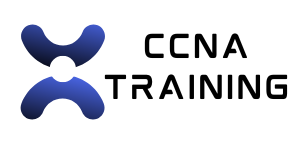Understanding the format of the exam is crucial for success. The exam format typically includes multiple choice questions, short answer questions, and essay questions. It is important to familiarize yourself with the structure of the exam so that you can allocate your time effectively. Knowing the breakdown of the exam will help you prioritize your study efforts and focus on the areas that require the most attention. Additionally, understanding the format will help you prepare mentally for the types of questions you will encounter on exam day.
Furthermore, understanding the exam format will allow you to practice time management. By knowing how many questions are in each section and how much time you have to complete them, you can develop a strategy for pacing yourself during the exam. This will help you avoid spending too much time on one question and running out of time for the rest of the exam. Understanding the format will also help you anticipate the types of questions that will be asked, allowing you to prepare and study accordingly. Overall, understanding the exam format is essential for effective preparation and success on exam day.
Key Takeaways
- Understanding the Exam Format
- Creating a Study Plan
- Utilizing Study Resources
- Practicing with Sample Questions
- Managing Exam Day Stress
Creating a Study Plan
Creating a study plan is essential for effective exam preparation. A study plan helps you organize your time and prioritize your study efforts. Start by identifying the topics and areas that will be covered on the exam. Once you have a clear understanding of what you need to study, you can create a schedule that allocates time for each topic. Be sure to set realistic goals and allow yourself enough time to thoroughly review each subject.
In addition, consider your learning style when creating a study plan. Some people may prefer to study in short, focused sessions, while others may benefit from longer study periods. Tailor your study plan to fit your individual needs and preferences. It is also important to schedule regular breaks to avoid burnout and maintain focus. Lastly, be sure to review and revise your study plan as needed. As you progress through your studies, you may find that certain topics require more or less time than anticipated. Flexibility is key to creating a study plan that is effective and sustainable.
Utilizing Study Resources
Utilizing study resources is an important part of exam preparation. There are a variety of resources available to help you study, including textbooks, online resources, study guides, and practice exams. Take advantage of these resources to supplement your learning and reinforce key concepts. Textbooks are a valuable source of information and can provide in-depth explanations of complex topics. Online resources such as educational websites and video tutorials can offer alternative explanations and visual aids to help you understand difficult concepts.
Study guides are also helpful tools for exam preparation. They often provide summaries of key points and practice questions to test your understanding. Practice exams are particularly valuable for familiarizing yourself with the types of questions that will be on the actual exam. They can also help you gauge your readiness and identify areas that require further review. Overall, utilizing a variety of study resources can enhance your understanding of the material and improve your chances of success on the exam.
Practicing with Sample Questions
| Question Number | Correct Answer | Time Taken (in minutes) |
|---|---|---|
| 1 | Option A | 2 |
| 2 | Option C | 3 |
| 3 | Option B | 4 |
Practicing with sample questions is an effective way to prepare for the exam. Sample questions can help you become familiar with the types of questions that will be asked and the format in which they will be presented. This can help reduce anxiety and improve your confidence on exam day. Additionally, practicing with sample questions allows you to assess your knowledge and identify areas that require further review.
Furthermore, practicing with sample questions can help improve your test-taking skills. By regularly exposing yourself to exam-style questions, you can develop strategies for approaching different types of questions and managing your time effectively. This can help you become more efficient at answering questions and avoid getting stuck on difficult problems. Finally, practicing with sample questions can help reinforce your understanding of key concepts and improve your retention of information. Overall, incorporating sample questions into your study routine is a valuable strategy for exam preparation.
Managing Exam Day Stress
Managing exam day stress is essential for performing at your best. It is normal to feel nervous before an exam, but excessive stress can impair your ability to think clearly and recall information. To manage exam day stress, start by getting a good night’s sleep before the exam. Being well-rested will help you stay focused and alert during the test. Additionally, eat a healthy meal before the exam to fuel your brain and body.
Furthermore, arrive at the exam location early to give yourself time to relax and mentally prepare. Take deep breaths and practice positive self-talk to calm your nerves. Once the exam begins, focus on one question at a time and avoid getting overwhelmed by thinking about the entire test. If you start to feel anxious during the exam, take a moment to close your eyes and take a few deep breaths to center yourself. Remember that it is okay to take breaks if needed to regroup and refocus. By managing exam day stress, you can approach the test with a clear mind and perform to the best of your abilities.
Reviewing and Revising

Reviewing and revising your study materials is an important part of exam preparation. After covering all the topics in your study plan, take time to review and reinforce your understanding of key concepts. This can involve rereading textbooks, reviewing notes, or creating flashcards to quiz yourself on important information. Additionally, revising your study materials allows you to identify any gaps in your knowledge and address them before the exam.
Furthermore, consider forming study groups with classmates or friends to review material together. Explaining concepts to others can help solidify your understanding and provide new perspectives on the material. Additionally, teaching others can help reinforce your own knowledge and improve your retention of information. Finally, consider seeking feedback from teachers or tutors on areas that may require further review. By reviewing and revising your study materials, you can ensure that you are well-prepared for the exam.
Seeking Support and Guidance
Seeking support and guidance from others can be beneficial during exam preparation. If you are struggling with certain topics or concepts, do not hesitate to ask for help from teachers, tutors, or classmates. They may be able to provide additional explanations or resources to aid in your understanding. Additionally, seeking support from friends and family members can provide emotional encouragement and motivation during stressful times.
Furthermore, consider seeking guidance from individuals who have previously taken the exam or are familiar with the subject matter. They may be able to offer valuable insights into what to expect on the exam and how to best prepare for it. Additionally, consider seeking out mentorship from professionals in the field related to the exam subject matter. Their expertise and advice can provide valuable guidance for your studies and future career aspirations. Overall, seeking support and guidance from others can provide valuable assistance during exam preparation and improve your chances of success on the exam.
In conclusion, effective exam preparation involves understanding the format of the exam, creating a study plan, utilizing study resources, practicing with sample questions, managing exam day stress, reviewing and revising, and seeking support and guidance from others. By following these strategies, you can approach the exam with confidence and improve your chances of success. Remember that preparation is key, so start early and stay focused on your goals. Good luck!
FAQs
What is the Cisco exam?
The Cisco exam is a certification exam offered by Cisco Systems, a leading networking and telecommunications company. The exam is designed to test the knowledge and skills of IT professionals in various Cisco technologies and products.
What are the different types of Cisco exams?
Cisco offers a range of certification exams, including entry-level, associate, professional, expert, and specialist exams. These exams cover a wide range of topics such as networking, security, collaboration, and data center technologies.
Why should I take the Cisco exam?
Earning a Cisco certification through the Cisco exam can validate your skills and knowledge in the IT industry, enhance your career prospects, and demonstrate your expertise in Cisco technologies to potential employers.
How can I prepare for the Cisco exam?
There are various resources available to help you prepare for the Cisco exam, including official Cisco training courses, study guides, practice exams, and online communities. It is also recommended to gain hands-on experience with Cisco technologies through lab work or real-world projects.
Where can I take the Cisco exam?
The Cisco exam can be taken at authorized Pearson VUE testing centers worldwide. You can locate a testing center near you and schedule your exam through the Pearson VUE website.
What is the passing score for the Cisco exam?
The passing score for the Cisco exam varies depending on the specific certification and exam. Cisco provides detailed information about passing scores for each exam on their official website.
















